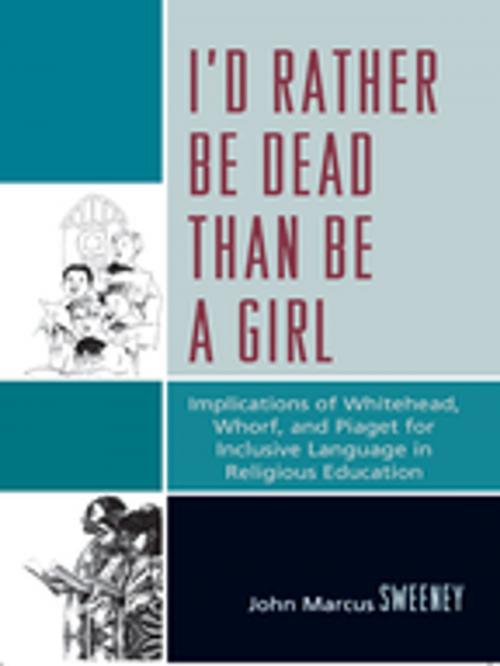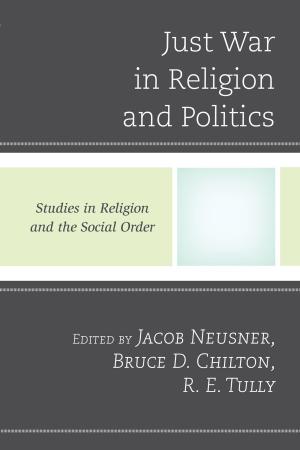I'd Rather Be Dead Than Be a Girl
Implications of Whitehead, Whorf, and Piaget for Inclusive Language in Religious Education
Nonfiction, Religion & Spirituality, Reference, Education, Social & Cultural Studies, Social Science, Gender Studies, Health & Well Being, Psychology| Author: | John Marcus Sweeney | ISBN: | 9780761848745 |
| Publisher: | UPA | Publication: | November 2, 2009 |
| Imprint: | UPA | Language: | English |
| Author: | John Marcus Sweeney |
| ISBN: | 9780761848745 |
| Publisher: | UPA |
| Publication: | November 2, 2009 |
| Imprint: | UPA |
| Language: | English |
In I'd Rather Be Dead Than Be a Girl, the author explains a threefold thesis of a study that language influences how human beings perceive reality, that the development of theoretical constructs can help explain resistances to and possibilities for inclusive language, and that the implementation of inclusive language is an important goal for religious education. The study begins with a description of the problem to be considered, that is, the role of sexist language in perpetuating sexual discrimination. Beginning in the third chapter, insights from Alfred North Whitehead's philosophy of organism, Benjamin Lee Whorf's principle of linguistic relativity, and Jean Piaget's genetic epistemology are used to investigate the stubbornness of sexist linguistic habits and the bases for developing inclusive linguistic habits. Finally, inclusive language is shown to be important for religious education, and some strategies for implementing inclusive language are presented.
In I'd Rather Be Dead Than Be a Girl, the author explains a threefold thesis of a study that language influences how human beings perceive reality, that the development of theoretical constructs can help explain resistances to and possibilities for inclusive language, and that the implementation of inclusive language is an important goal for religious education. The study begins with a description of the problem to be considered, that is, the role of sexist language in perpetuating sexual discrimination. Beginning in the third chapter, insights from Alfred North Whitehead's philosophy of organism, Benjamin Lee Whorf's principle of linguistic relativity, and Jean Piaget's genetic epistemology are used to investigate the stubbornness of sexist linguistic habits and the bases for developing inclusive linguistic habits. Finally, inclusive language is shown to be important for religious education, and some strategies for implementing inclusive language are presented.















